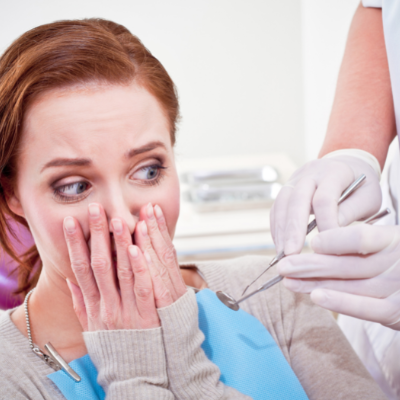5 Tips to Help You Cope with Dental Anxiety
 |
There are many causes of dental anxiety, such as a fear of pain, needles or injection, feelings of helplessness and loss of control, and/or embarrassment and loss of personal space.
Our dental team is here to help you! Our goal is to make your visit as comfortable and stress-free as possible so you can get the proper oral healthcare you need. Here are a few tips that can help you manage dental anxiety:
- Prepare ahead to reduce stress: Book your appointment during a low-stress time of day, so you're not feeling rushed and stressed out trying to get there on time. Avoid caffeine before a dental appointment and eat high-protein, low-sugar foods to feel calmer.
- Let your dentist know about your anxiety: We can work on a communication plan during your treatment to help your visit feel more comfortable, such as agreeing on a signal to stop if you need to take a break. Don't be afraid to ask questions and share any bad experiences you've had in the past.
- Distract yourself: Bring headphones so you can listen to your favourite music or audiobook. Some dental suites will have a TV to keep you entertained. Squeezing a stress ball or playing with a small handheld object can help occupy your hands. If you don't have anything on hand, ask for an elastic ball or fidget spinner.
- Use mindfulness techniques before the appointment: Try deep breathing exercises to help relax tension in your muscles, relax your mind and help you feel calmer. Close your eyes and slowly inhale through your nose, hold it for a few seconds, and then slowly exhale through your mouth.
- Ask your dentist about dental sedation options: There are several sedation options, such as nitrous oxide ("laughing gas") or an oral sedative that may be available to help you relax during a procedure. These aren't general anesthesia, so you will remain conscious and responsive but very relaxed during your appointment. Discuss your options with your dentist so we can determine the best solution for you.


